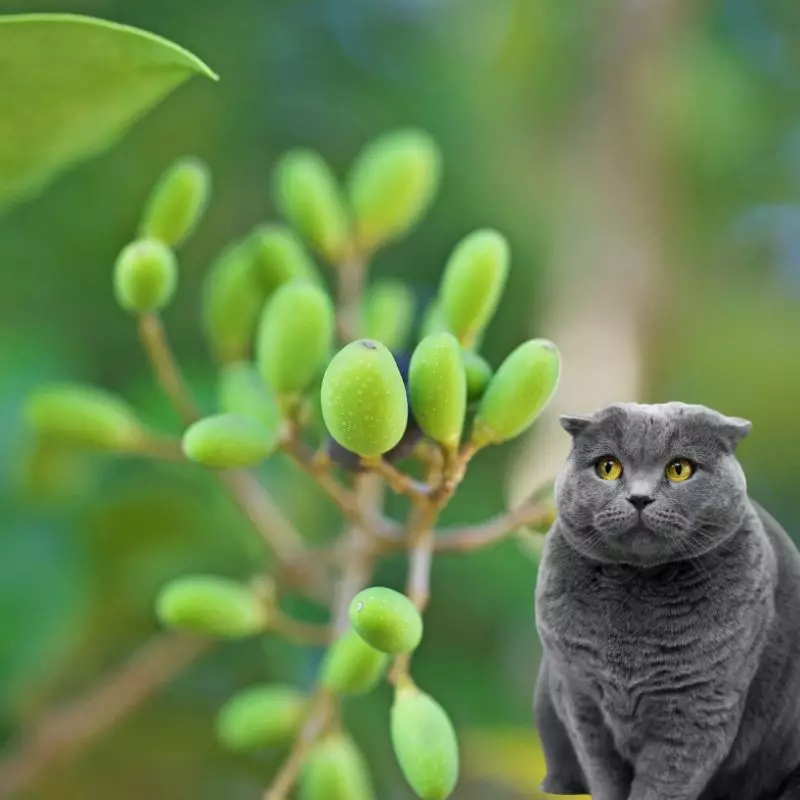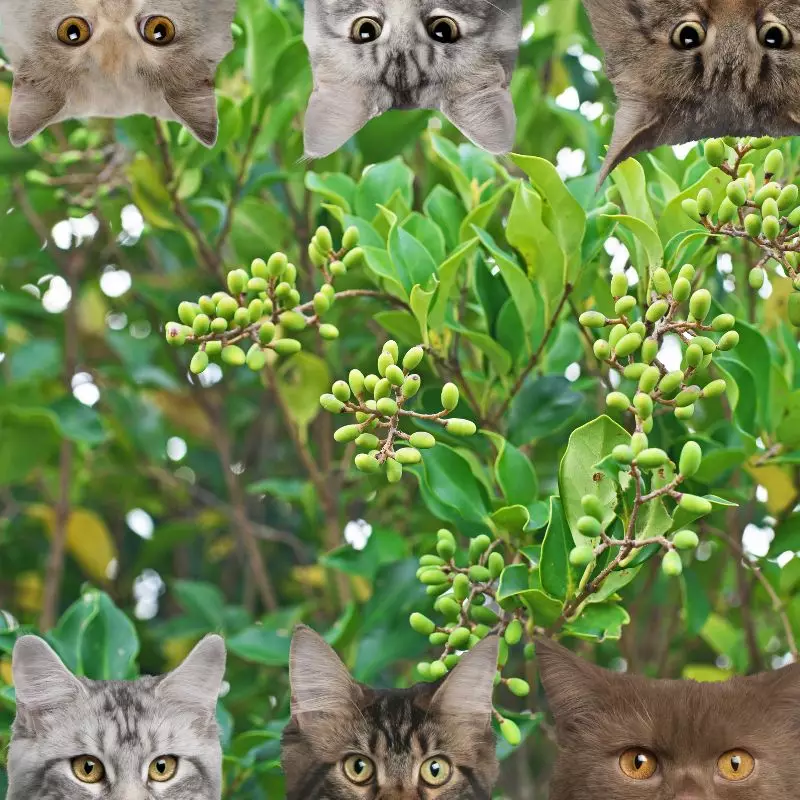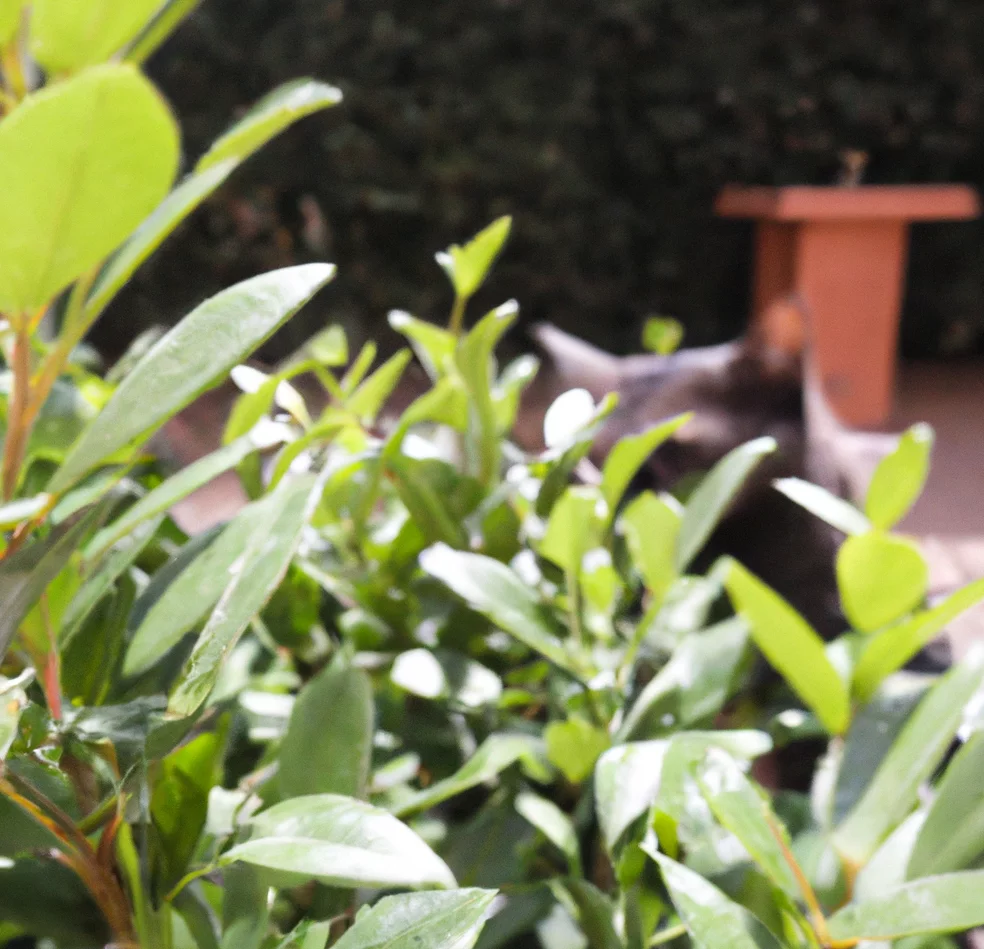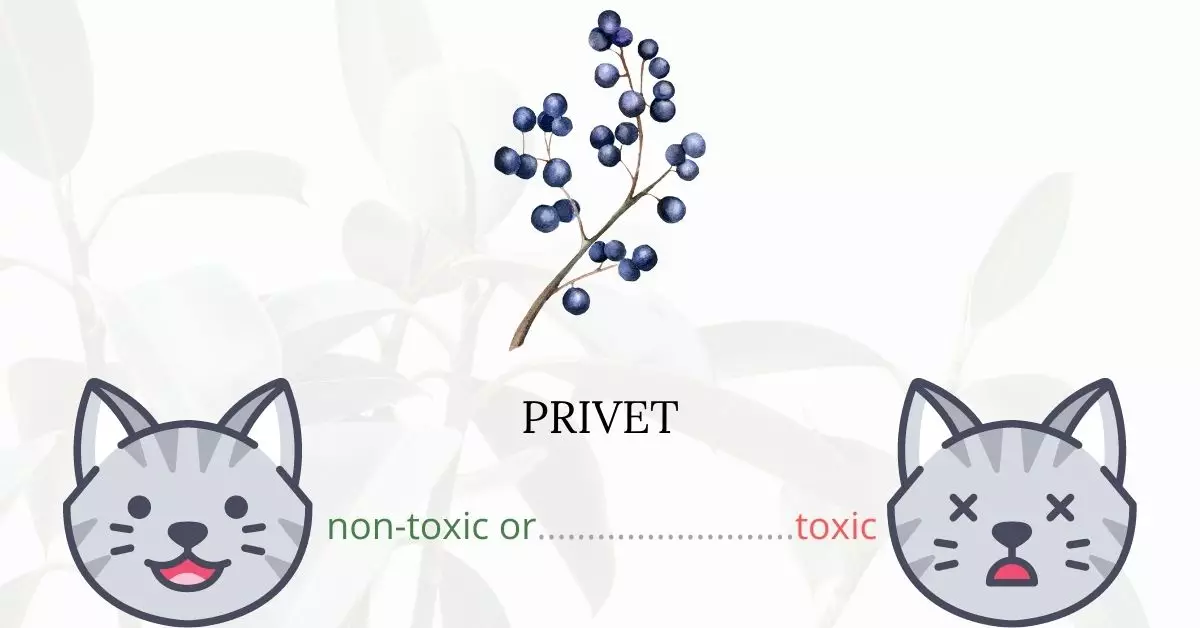Indeed, Privet, identified variously as wax-leaf, common privet, or Amur privet, is toxic to cats due to the presence of terpenoid glycosides, substances that can cause rapid heartbeat among other adverse effects in cats.
This article, penned with the insight and collaboration of a team of seasoned Doctors of Veterinary Medicine (DVMs), aims to impart precise and current information about the potential dangers that various plants, focusing on Privet in this instance, pose to cats. Our experienced DVM contributors have allowed us to delve deep into the risks associated with different flora and their impacts on our feline friends. Moreover, to ensure the reliability and comprehensiveness of the information provided, we have meticulously researched high-authority websites like ASPCA and PetMD for each plant discussed.
It is crucial to understand that cats, especially those that are bored, are prone to endanger themselves by consuming poisonous plants such as common privet. When ingested, toxic glycosides are released, which can be particularly lethal for cats due to the significant amount a cat might consume relative to its small size.
Clinical Signs of Privet Poisoning in Cats

When a cat ingests, contacts, or even smells the Privet plant, it may experience a range of symptoms due to the terpenoid glycosides found in the plant. These glycosides have a toxic effect on cats, and understanding the symptoms is critical to acting swiftly and ensuring the well-being of your feline companion:
- Vomiting and Diarrhea: These are often the initial reactions as the cat’s body attempts to expel the toxic substance it has ingested. The body is naturally trying to rid itself of the harmful glycosides present in the privet.
- Loss of Physical Coordination: The neurotoxic effects of the glycosides can affect the cat’s nervous system, leading to a noticeable lack of coordination. This may manifest as stumbling, swaying, or a difficulty in walking straight.
- Weakness: This general lethargy and weakness can be a result of the body’s energy being directed towards combating the toxic ingestion, thereby leaving the cat feeling exhausted and weak.
- Loss of Appetite: Due to the gastrointestinal distress caused by the privet, a cat may lose interest in food or might be unable to eat.
- Gastroenteritis (Upset Stomach): This refers to the inflammation of the stomach and intestines. The glycosides in the privet can irritate these areas, causing discomfort and further contributing to the loss of appetite.
- Abnormally Fast Heart Rate: The terpenoid glycosides can stimulate the heart muscles, leading to an elevated heart rate. This can put undue stress on the heart and, in severe cases, could lead to further cardiac complications.
It’s vital to monitor your cat closely if you suspect any contact with the privet plant and seek immediate veterinary assistance if any of these symptoms are observed.
First Aid and Treatment of Privet Poisoning in Cats

Your cat will be physically ill, with diarrhea, rapid breathing, and vomiting as the initial signs. If you observe your cat nibbling at the bush, take him or her to the veterinarian right once. Because you don’t know how much your cat ate, it’s critical to get medical help as soon as possible.
Your cat will be given a comprehensive physical examination once he or she is on the exam table. Because the symptoms are so nonspecific, they won’t directly point to ordinary privet poisoning. Your veterinarian will instead have to rely on any plant material you bring in. If your cat still has berries or leaves in its mouth, the vet will be able to pinpoint the source of your cat’s illness.
If your cat has consumed a significant amount of this shrub, it may be experiencing cardiac and respiratory problems (high heart and breathing rates). It’s critical that your cat receives therapy as soon as these symptoms appear. Its poisoning and symptoms should be treated as long as it didn’t eat a lot of plant material.
Recovery from Privet Poisoning in Cats

Unless the cat ate a substantial portion of the plant and did not receive quick care, poisoning by common privet shrub is rarely lethal. Your cat is at a higher risk of acquiring life-threatening symptoms due to its small size. Treatment as soon as possible could make the difference between life and death.
Prevention of Privet Poisoning in Cats
Keeping your feline companion indoors is the best way to prevent another poisoning episode. Limit your cat’s access outdoors and provide cat-safe grasses and plants that he can consume with no negative health effects.
If you love plants but have cats at home, check out these lists:





